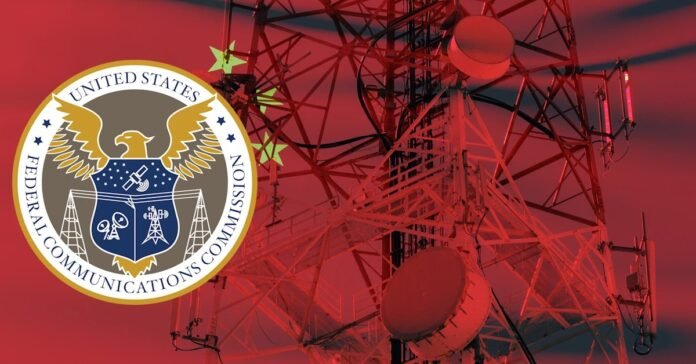FCC Takes Bold Steps to Fortify U.S. Telecommunications Against Cyber Threats
In a decisive move to bolster the security of the nation’s telecommunications infrastructure, the U.S. Federal Communications Commission (FCC) has announced new measures aimed at mandating telecom carriers to enhance their cybersecurity protocols. This initiative comes in response to increasing cyber threats, particularly from state-sponsored actors, including those from China. The FCC’s actions underscore the critical importance of securing communication networks to safeguard national security, public safety, and economic stability.
The Rationale Behind the FCC’s Initiative
Jessica Rosenworcel, the chairwoman of the FCC, emphasized the necessity of these measures in a recent media statement. “The cybersecurity of our nation’s communications critical infrastructure is essential to promoting national security, public safety, and economic security,” she stated. As technology evolves, so do the capabilities of adversaries, necessitating a proactive approach to cybersecurity. The FCC aims to create a modern framework that enables telecom companies to better prevent and respond to cyberattacks, particularly in light of recent incidents like the Salt Typhoon attack.
Key Proposals and Frameworks
The FCC has shared a draft Declaratory Ruling with its commissioners, which asserts that telecommunications carriers are required under section 105 of the Communications Assistance for Law Enforcement Act (CALEA) to secure their networks against unlawful access or interception. This ruling is accompanied by a proposal that would mandate communications service providers to submit annual certifications to the FCC. These certifications would attest that the companies have developed, updated, and implemented a comprehensive cybersecurity risk management plan.
If adopted, the Declaratory Ruling would take effect immediately, while the draft Notice of Proposed Rulemaking (NOPR) would invite public comments on cybersecurity risk management requirements for a broad spectrum of communications providers. This collaborative approach aims to gather insights on additional measures that could further enhance the cybersecurity posture of communications systems and services.
The Threat Landscape
Recent reports have highlighted the alarming extent of cyber espionage activities targeting U.S. telecommunications companies. A December 2024 report from a top U.S. security agency confirmed that state-sponsored actors from China had infiltrated at least eight U.S. communications firms, compromising sensitive systems and exposing vulnerabilities in critical telecommunications infrastructure. This breach was part of a larger espionage campaign affecting numerous countries, raising significant concerns about the implications for U.S. national security.
Notably, T-Mobile’s network was among those compromised in a major Chinese cyber espionage operation, which also targeted other telecommunications giants such as Verizon Communications, AT&T, and Lumen Technologies. These incidents underscore the urgent need for enhanced cybersecurity measures within the telecommunications sector.
The Broader Implications of Cyberattacks
The FCC recognizes that a cyberattack on the communications sector can have far-reaching consequences, affecting various other sectors, including healthcare, manufacturing, energy, and transportation. Ensuring the security and reliability of communications infrastructure is vital for maintaining public confidence in the nation’s ability to protect critical systems. The FCC’s initiative aims to safeguard everyday Americans from the repercussions of cyberattacks and to fortify the resilience of the nation’s economic systems.
Ongoing Efforts and Future Directions
In addition to the current proposals, the FCC has previously suggested cybersecurity risk management plan requirements for submarine cable landing applicants and licensees. The agency is also working to ensure that participants in the Emergency Alert System and Wireless Emergency Alerts maintain robust cybersecurity protocols.
As global cybersecurity agencies continue to warn about the threats posed by state-sponsored actors, the FCC’s proactive measures are crucial in defending against these risks. The agency’s commitment to enhancing cybersecurity within the telecommunications sector is part of a broader effort to secure the nation’s communications infrastructure against evolving threats.
Conclusion
The FCC’s recent announcements reflect a significant step toward fortifying the U.S. telecommunications landscape against cyber threats. By mandating telecom carriers to enhance their cybersecurity measures, the agency aims to protect vital communications infrastructure and ensure national security, public safety, and economic resilience. As technology continues to advance, the FCC’s proactive approach will be essential in staying ahead of emerging cyber threats and safeguarding the nation’s critical systems.

